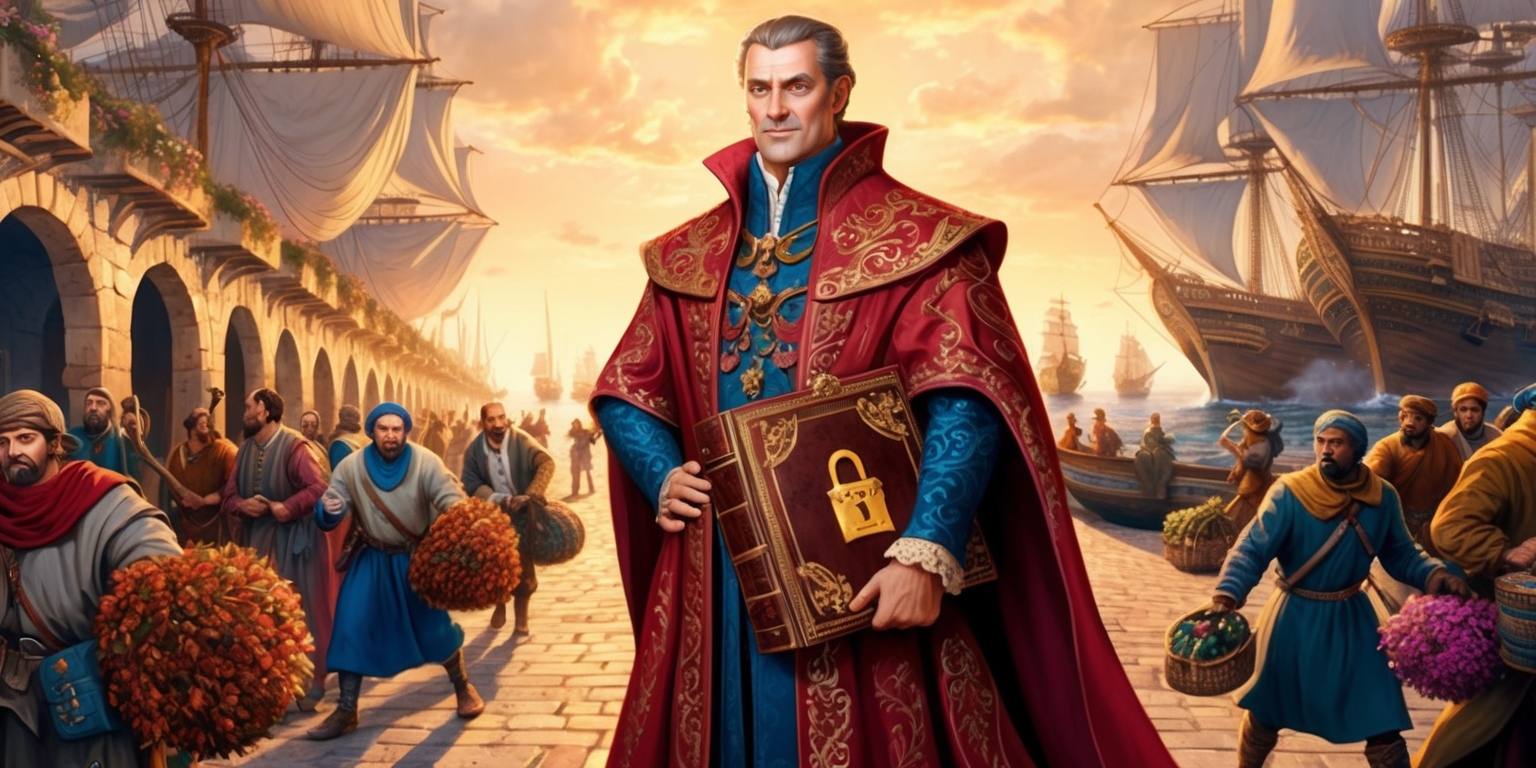Mastering Trade Routes: Unlocking the Power of Merchants in Civilization VII
Feb-07-2025

The world of Civilization VII offers players a vast and intricate tapestry of strategies and dynamics to navigate, with resources as the cornerstone of civilization development. Among the many ways to harness these resources, establishing trade routes through the use of merchants stands out as a key factor in propelling your empire forward. Understanding how merchants operate and how to optimize trade routes can significantly impact your gameplay experience and yield substantial benefits for your settlements.
Understanding Resources and Their Importance
In Civilization VII, resources are not just tools for achieving a goal; they are vital components that enhance the vitality of your empire. Access to a diverse array of resources fortifies your cities, enabling them to produce more units and build structures more efficiently. Additionally, resources play a vital role in diplomatic relations. The variety and abundance of resources you possess can sway negotiations with neighboring leaders, paving the way for alliances or trade agreements that bolster your position in the game.
Introduction to Merchants
Merchants are a unique unit introduced early in the gameplay of Civilization VII. These individuals serve a critical function in establishing trade routes and bringing valuable resources into your empire. You can start producing merchants as you progress through the Antiquity Age, specifically when a "Trade Opportunity" message appears on your screen. This indicates a neighboring leader with ample resources, making it an ideal moment to send a merchant for trade.
Originating Merchants: Production or Purchase
Once the opportunity arises, you can produce merchants in your capital city by navigating to the production menu. Typically, producing a merchant takes three to four turns, or alternatively, you can purchase one for about 400 gold. If your resources allow, acquiring merchants promptly can set the stage for robust trade networks early in the game.
Selecting Your Trade Route Destination

After creating a merchant, your next step is to choose a destination for trade. This decision can dramatically influence the resources available to your civilization. Look for settlements that offer a myriad of resources or specialize in particular ones critical to your strategy.
Expanding Trade Network through Exploration
A key aspect of maximizing your trade routes lies in exploration. The more settlements and leaders you discover, the wider your options become for trade. By expanding your map awareness, you enhance your chances of finding rich resources and establishing beneficial trade routes.
The Role of Relationships in Trade
Your relationship with other leaders is fundamental in establishing trade routes. You can only propose new routes to leaders with whom you share a friendly or neutral standing. If a relationship is tense or adversarial, they are unlikely to entertain trade proposals. Therefore, fostering amicable relations should be a priority as you engage with other leaders.
Understanding Trade Route Status
Before finalizing your trade route decisions, it’s crucial to assess your standing with potential trade partners. By inspecting their relationship status via the leader portrait, you can track your influence. A numerical status indicator (green for good relations, red for hostility) can inform your trading decisions and strategies.
Executing the Trade Route
With a destination chosen and a viable leader identified, it’s time to execute the trade route. Select your merchant, pick the desired settlement from the "Possible Trade Routes" menu, and commence their journey. Automated movement means that you won’t need to micromanage each turn, allowing you to focus on other strategic elements in the game.
The Arrival of the Merchant
Upon arrival at the designated settlement, you’ll face the choice to either establish a trade route or explore new opportunities. To formalize the trade route, a simple click on the designated icon will secure the resources available at that location. This step is crucial, as establishing trade routes generates significant benefits for your civilization.
Resource Allocation Post-Trade
Once a trade route is established, you've essentially unlocked new resources. If the merchant was sent to a city, the benefits are streamlined to one of your cities. Conversely, if they visited a town, you gain bonus resources, which can be allocated across multiple settlements. This strategic distribution potential allows for greater flexibility in managing your empire's needs.
Maximizing Merchant Potential
It's beneficial to have a few merchants on the move across the map. This not only generates a continuous flow of resources but also fosters better relationships with other leaders and enhances your empire's overall statistics. Keeping your merchants active ensures that you're reaping the maximum benefits from your trade routes.
Monitoring and Adjusting Your Empire’s Economy
As you grow your empire and expand your trade networks, actively monitor resource allocation and the overall economy of your settlements. Adjusting trade routes based on shifts in your empire’s needs can create efficiencies that lead to greater success, enabling you to shift and adjust to the evolving gameplay.
Engaging with Exploration as a Strategy
Exploring your surroundings not only feeds into establishing trade routes but also opens up possibilities for expansion and interaction with new leaders. The integration of exploration into your strategy can vastly diversify your resource availability and offer a substantial competitive advantage.
Utilizing Civilization VII Guides
The expansive world of Civilization VII invites players to continually learn and adapt. Engaging with comprehensive guides can enhance your understanding of game mechanics, including merchants and trade routes, bolstering your success as you navigate the complexities of your civilization’s growth.
Civilization VII requires players to delve into the nuances of strategy, resource management, and relationship-building. Mastering the role of merchants and trade routes can unlock unprecedented opportunities and advantages, laying the groundwork for thriving civilization and conquering dominance in your gaming journey.







